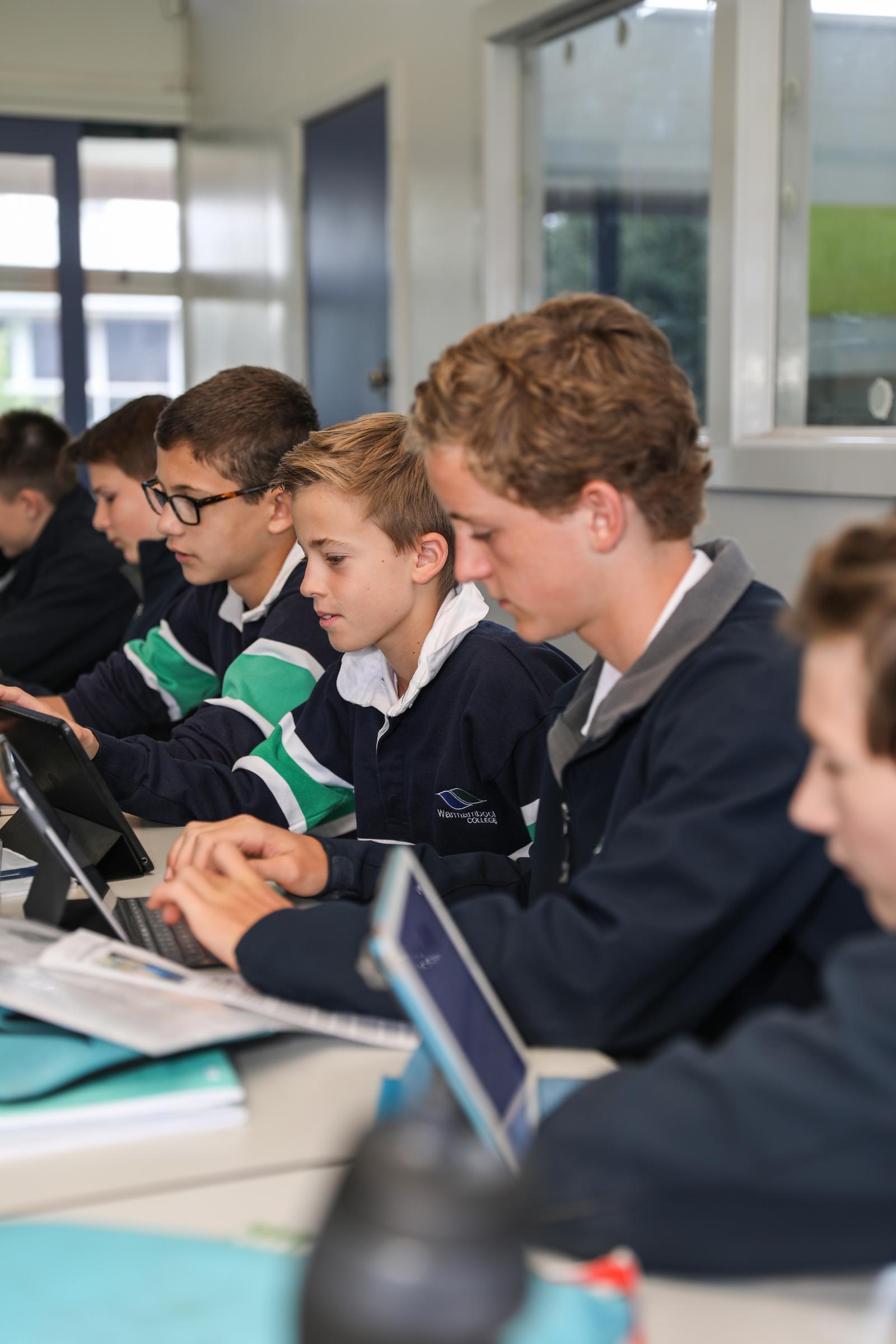Principal's Report

I still remember clearly the day that Steve Jobs stood up on stage in 2007 and announced to the world that Apple was going into the mobile phone market. I scoffed at the idea of this ‘iPhone’ and wondered why Steve was getting so excited about having the world in your pocket. It was expensive, it looked gimmicky and I presumed that Apple was trying to extend its brand just a little too far. Besides, Nokia knew how to make mobile phones, not Apple. How wrong I was.
At our home we’ve always had terrible mobile phone coverage, so we continue to rely on using the landline to communicate with the world. But with the development of wifi mobile calls from last year, we’re finding that even our landline is getting used very infrequently. When I make phone calls home now, I always default to a parent’s mobile number and almost presume that the landline recorded in Compass has been disconnected. We’re not completely wire-free when it comes to telecommunications in Australia, but we’re getting closer. And of course mobile phones are primarily used for phone calls these days – as it turns out Steve Jobs was right. The era of smart phones has revolutionised the world, but not always for the better.
Many of you will have seen news reports a couple of months ago regarding mobile phone ‘bans’ in Victorian government schools from the start of 2020. This obviously includes Warrnambool College. There are many reasons why the government was decided to take what many consider drastic action. Much of it is based around the science of brain development and the impact that excessive screen time is having on adolescents. Obviously concerns around online safety and cyber bullying also abound. There are no easy ways to address these concerns - the experiment that Steve Jobs set in motion 12 years ago has been adopted by practically every person in the western world. At this stage we don’t have specific advice from the Department of Education around how we will implement a mobile phone ban policy; more information will be provided to school in early term 4. But we do have an opportunity to begin a conversation around this as a community between now and the end of the year.
To this end, Warrnambool College will be a big part of the ‘Warrnambool Wellbeing Week’ held in the last week of August. Our students will hear from a series of guest speakers over the course of the week, on topics from Rites of Passage rituals to developing resilience to digital online safety. Each weeknight during this week, public seminars will be held in the Lighthouse Studio (on Timor Street). Further details on how to book tickets for these sessions are in the newsletter – I encourage as many parents as possible to attend these sessions. On Wednesday August 28th, Martine Oglethorpe will lead a presentation and discussion on digital wellbeing and online safety. I anticipate that topics such as mobile phone bans in schools will certainly be addressed during this session, as we all try to grapple with how to best support our students and their learning in and out of school. We won’t be coming up with answers or developing school processes during this discussion. But we will be engaging with experts, parents and school communities to try to collectively resolve how to maximise student learning and minimise the negative impacts of screens for the young people of Warrnambool. It takes a village to raise a child – we can only work on this successfully if we work together.
Kind Regards,
Dave Clift
Principal
